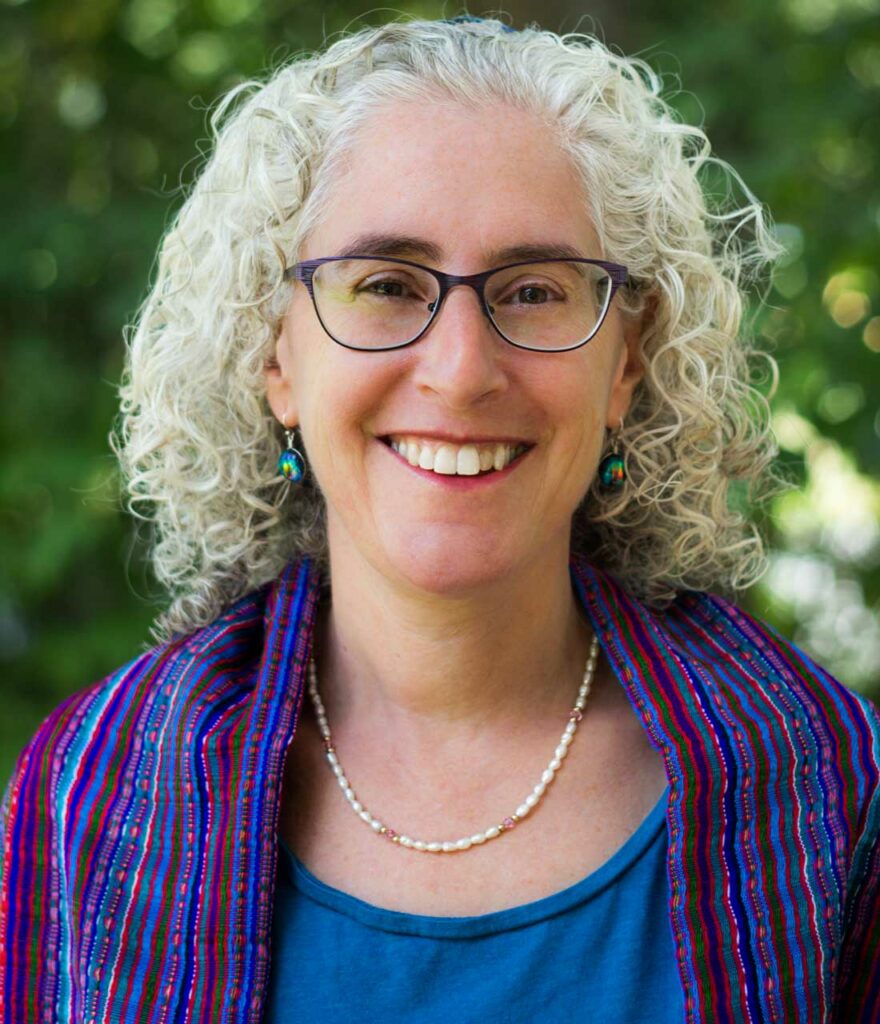The Jewish holiday of Simchat Torah marks the end and beginning of the annual Torah reading cycle. The direct translation is “Rejoicing with the Torah.” It symbolizes the sacred connection of the teachings of the Torah and Judaism.
This holiday is the last one of many Fall holidays (Rosh Hashanah, Yom Kippur and Sukkot) and is traditionally full of dancing and celebration as the Torahs are carried around the synagogue. The most precious book of the Jewish people, the Torah is completed with the end of Deuteronomy and then immediately we begin again with Genesis.

This year also marks the first anniversary of Hamas’ attack on Israel on Simchat Torah, when over 1,200 Israelis were murdered, over 250 people taken hostage, and a war began. (The Jewish calendar is a lunar calendar which is why Hebrew dates stay the same, but the secular date changes.)
This tragedy brought profound grief to the Jewish community and the broader Middle East, with countless lives shattered by loss and suffering.
How does one rejoice in the midst of grief? Can we celebrate during war? Jewish tradition teaches about this very challenge.
When a wedding procession and a funeral procession meet in the road, the ancient rabbis asked, which one takes precedence?
Rashi, an 11th century commentator explained, “When the bride comes out from her father’s home to the wedding hall at the same time [as] those accompanying a dead body for burial and both groups will be shouting—one group with joy and the other in mourning and we don’t want to mix the two, we reroute those accompanying the deceased…”
In other words, joy is prioritized over mourning. This is also challenging. It’s difficult and not healthy to stifle one’s emotions.
My friend Rabbi Jen Gubitz suggests we explore the idea of having a wider road. In other words, joy and grief can exist together. I experience this when I officiate at funerals and weddings.
While remembering a loved one at a funeral, memories that bring joy and laughter are shared. While officiating at a wedding, a beloved parent or other family member may be remembered during the service, bringing tears of love and remembrance to the bride or groom.
In her book “The Amen Effect,” Rabbi Sharon Brous captures the essence of finding joy amid sorrow: “Joy doesn’t erase the suffering. It doesn’t deny the pain or distract from it. Rather, joy insists that, even in the darkest hours, we must find some way to still pursue life, love, and goodness.” This perspective is embodied on Simchat Torah.
We will affirm our joy in Torah and our resilience in challenging times. Many of those murdered were at the all night Nova dance festival in the Negev. We will embrace this holiday even through the grief and find joy. We will dance again.
Rabbi Faith Joy Dantowitz is the rabbi of Congregation Emeth, located in Morgan Hill and serving all of South County. Rabbi Dantowitz can be contacted at ra***@***th.net.








